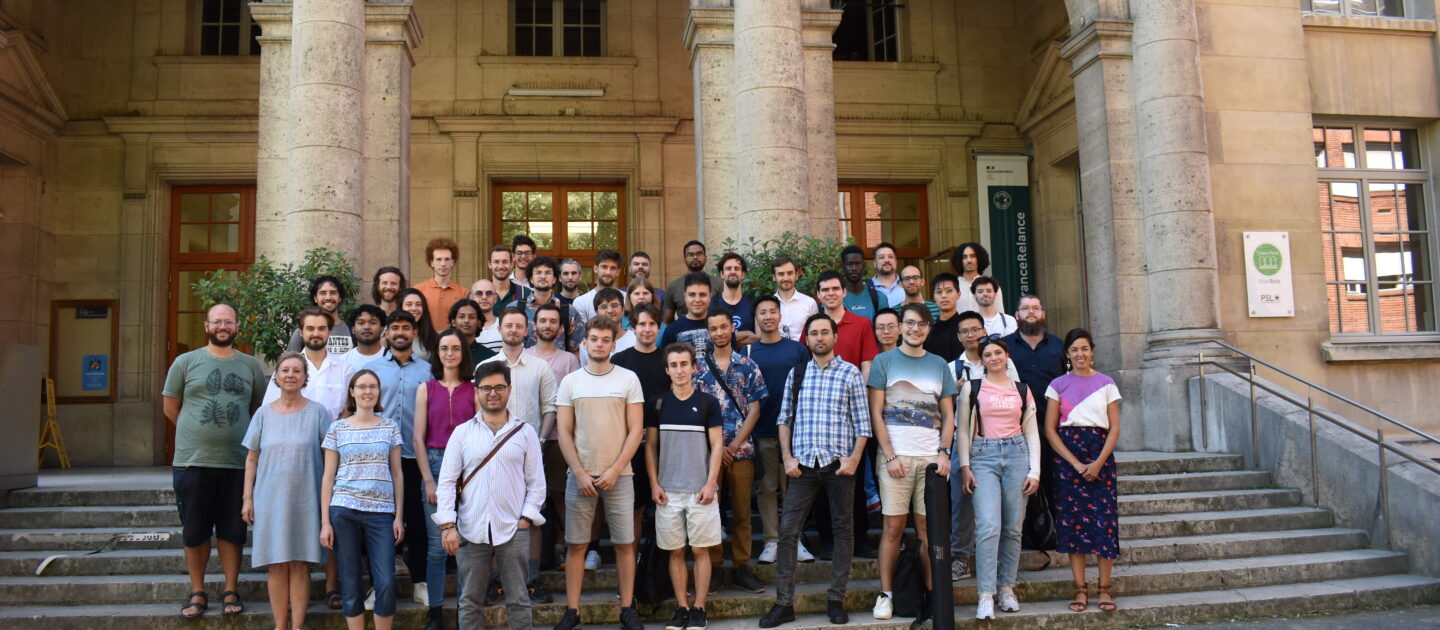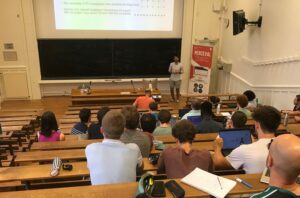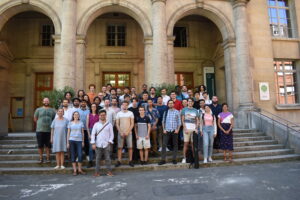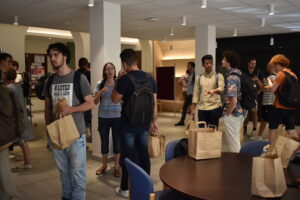
Quantum Information Paris Summer School 2023
8 Sep, 2023This summer school covered topics in computer science aspects of quantum information theory.
Quantum Information Paris Summer School – QIPSS 2023 – took place in Paris, from September the 4th to the 8th 2023 at amphitheater Hermite at Institut Henri Poincaré, Paris 5, France.
It welcomed 50 young researchers mainly from France and Europe.
This summer school was organized by Quantum Information Center Sorbonne (QICS), Paris Centre for Quantum Technologies (PCQT) and sponsored by Welink, VeriQloud, Pasqal and Quandela.
Speakers
Jamie Sikora (Virginia Tech, USA)
« Semidefinite programming in quantum information science »
Semidefinite programming is a mathematical tool that has found countless applications in the study of quantum information. I will introduce the background on semidefinite programming including some cool tips and tricks on how to use them. I will study the quantum state discrimination problem and, time permitting, the problem of detecting entanglement. l will also introduce how to calculate/optimize important quantum functions such as the trace norm, the completely bounded trace norm/diamond norm, the fidelity function, and several entropy functions.
Christopher Chubb (ETH Zurich, Switzerland)
« Tensor networks »
The curse of dimensionality associated with the Hilbert space of many-body systems provides a significant obstruction to the study of condensed matter systems. Tensor networks are a notation and set of techniques that have proven an important tool in overcoming this difficulty, both in the numerical and theoretical regimes. At their core, tensor networks can be seen as a generalisation and extension of standard linear algebra. Thus, while originally conceived of in the context of condensed matter simulations, tensor networks have seen use in many other areas such as quantum information, quantum gravity, machine learning, and error correction, just to name a few. In these lectures I will cover the basics of the notation and theory behind tensor networks, and cover some of their most important applications thereof.
Aurélie Denys (INRIA de Paris)
« Bosonic codes »
After a brief introduction to bosonic systems, I will explain how they can be used to construct error-correcting codes, known as bosonic codes. I will compare them with the more traditional multi-qubit codes. I will then present in details several examples of single-mode codes (GKP, Cat…) and figures of merit to assess their performance. The rest of the talk will be devoted to multimode codes.
Maris Ozols (University of Amsterdam, Netherlands)
« Representation theory in quantum computing »
This tutorial will consist of three lectures. The first lecture will cover the basics of representation theory of finite groups: irreducible representations, their characters, and Schur’s Lemma. We will also discuss the non-abelian Fourier transform and its application to the hidden subgroup problem. The second lecture will cover Schur-Weyl duality. In particular, we will discuss the representation theory of the unitary and symmetric groups, and introduce the quantum Schur transform. The third lecture will cover various applications of representation theory in quantum computing, such as weak Schur sampling, spectrum estimation, and tomography.
Ramis Movassagh (Google Quantum AI, California, USA)
« Theoretical aspects of quantum advantage »


